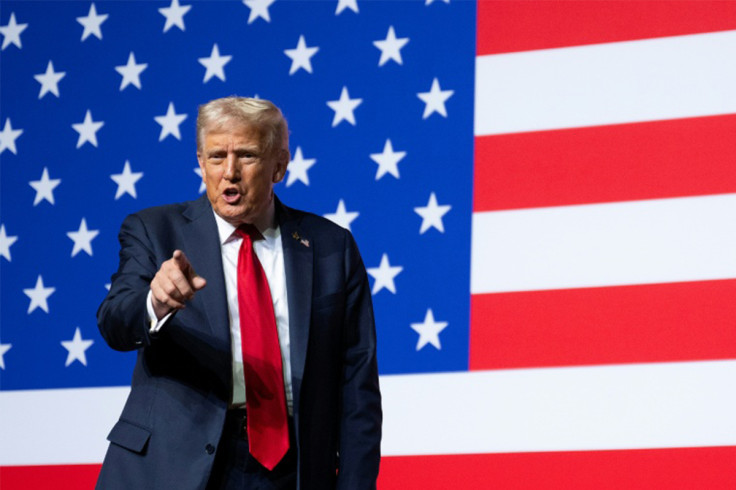You Can't Take Trump Seriously — and That's Exactly the Problem
From Macron's sarcasm to Medvedev's jabs to Newsom's memes, Trump is a global punchline — but ridicule won't hold him accountable

Humor is essential to our social fiber, but in politics, it presents a unique danger. Nowhere is this clearer than with Donald Trump, a US president who has become the world's favorite punchline. He invites easy laughter, but with every joke, we risk dulling our awareness of his true power. Trump is not just a character on stage — he is a man with the authority to reshape nations. The more we laugh him off, the less prepared we are for the very real consequences of his political ambitions.
Jokes and internet memes about Trump's eccentric behavior have been central to his brand since the start of his political career. Yet the constant ridicule has done little to diminish his power. Now, as Trump pushes through increasingly strategic policies — including his recent agreement with Netanyahu supporting Israel's indefinite occupation of Gaza — the stakes are far higher. So why, at the very moment his decisions jeopardize global communities, do we continue to reach for humor as our primary weapon against the American president?
Ridicule vs Accountability
A recent high-profile example came when Trump falsely claimed to have brokered a peace deal between Albania and Azerbaijan — two nations that were never at war. The claim quickly became fodder for mockery at an international summit, where Albanian Prime Minister Edi Rama joked to French President Emmanuel Macron, 'You should apologize to us, because you didn't congratulate us for the peace deal that President Trump made between Albania and Azerbaijan.' Macron, playing along, offered a sarcastic apology for failing to acknowledge Trump's imaginary triumph.
PM of Albania having a good laugh with President of Azerbaijan and Macron about Trump repeatedly claiming that he ended the war between their two countries which were not at war with each other. pic.twitter.com/5lP6XTps2J
— Ron Filipkowski (@RonFilipkowski) October 2, 2025
But while world leaders laugh off his blunders, Trump continues to lean into the role of the fool. The result is a political sphere where ridicule replaces accountability, and seriousness gives way to spectacle. If jokes remain the only consequence for Trump's ignorance, there will be no end to his reckless displays.
Another recent example came from Russia's Security Council Deputy Chairman, Dmitry Medvedev, who turned to humor to undermine Trump. After Trump bragged about sending nuclear submarines near Russia, Medvedev mocked the claim with a sarcastic jab, asking whether such submarines even existed. His joke wasn't just a dismissal — it was a calculated move to make Trump look unserious on the world stage. When adversaries can so easily reduce the US president to the butt of a joke, it shows how comedy becomes both a weapon against him and a trap that obscures the real dangers of his rhetoric.
Internet Theater
Lastly, in the past month, California Governor Gavin Newsom's feud with Trump has spilled onto X, where it has taken the form of memes and viral jabs. Their back-and-forth has played out less like statesmanship and more like internet theater, reinforcing how even high-level political disputes are increasingly reduced to punchlines. With AI-generated imagery now serving as ammunition in their feud, one has to ask: why are elected officials — or their communications teams — spending their time crafting witty X posts instead of governing?
TIME FOR YOUR DAILY WALK, DONALD! (NO STAIRS) pic.twitter.com/I3tLw7fhyA
— Governor Newsom Press Office (@GovPressOffice) October 1, 2025
Humor is a natural response to absurdity, but it cannot be our only response to power. As long as Trump thrives as a global punchline, we risk mistaking ridicule for resistance. The more we circulate memes, share clips, and laugh at late-night monologues, the easier it becomes to believe that mockery itself is a form of accountability. But jokes don't stop legislation and memes cannot undo the damage of real-world policies.
Trump has long understood how to use humor to his advantage — to disarm, to distract, to brand himself as larger than life while sidestepping responsibility. The danger lies not only in his absurd statements but in our willingness to let those absurdities define him. Every time we reduce him to a caricature, we dull our awareness of the consequences he is capable of unleashing.
© Copyright IBTimes 2025. All rights reserved.




















